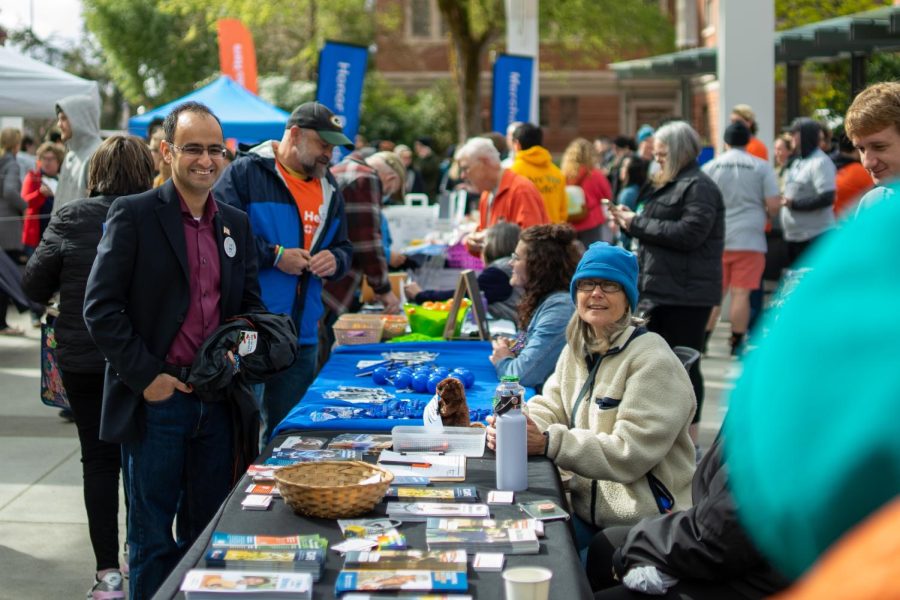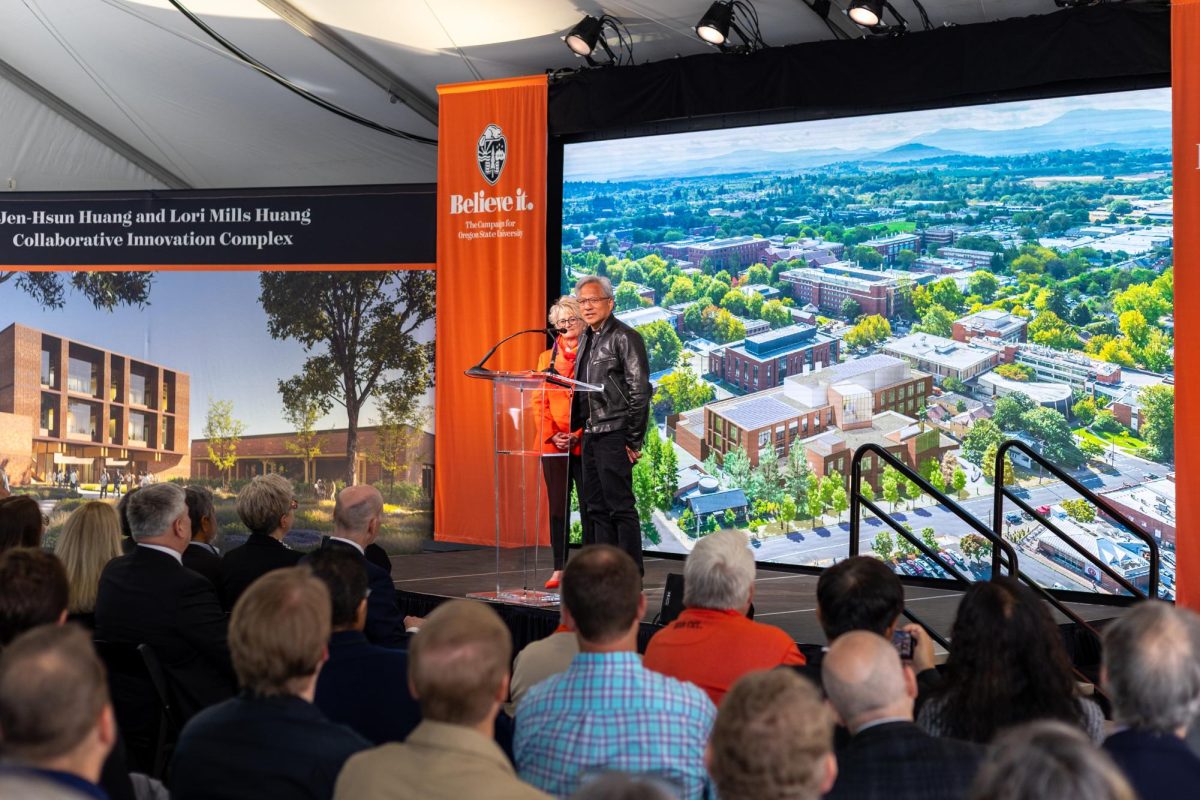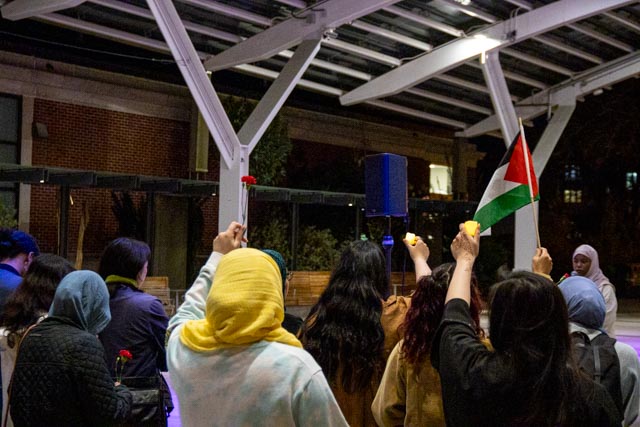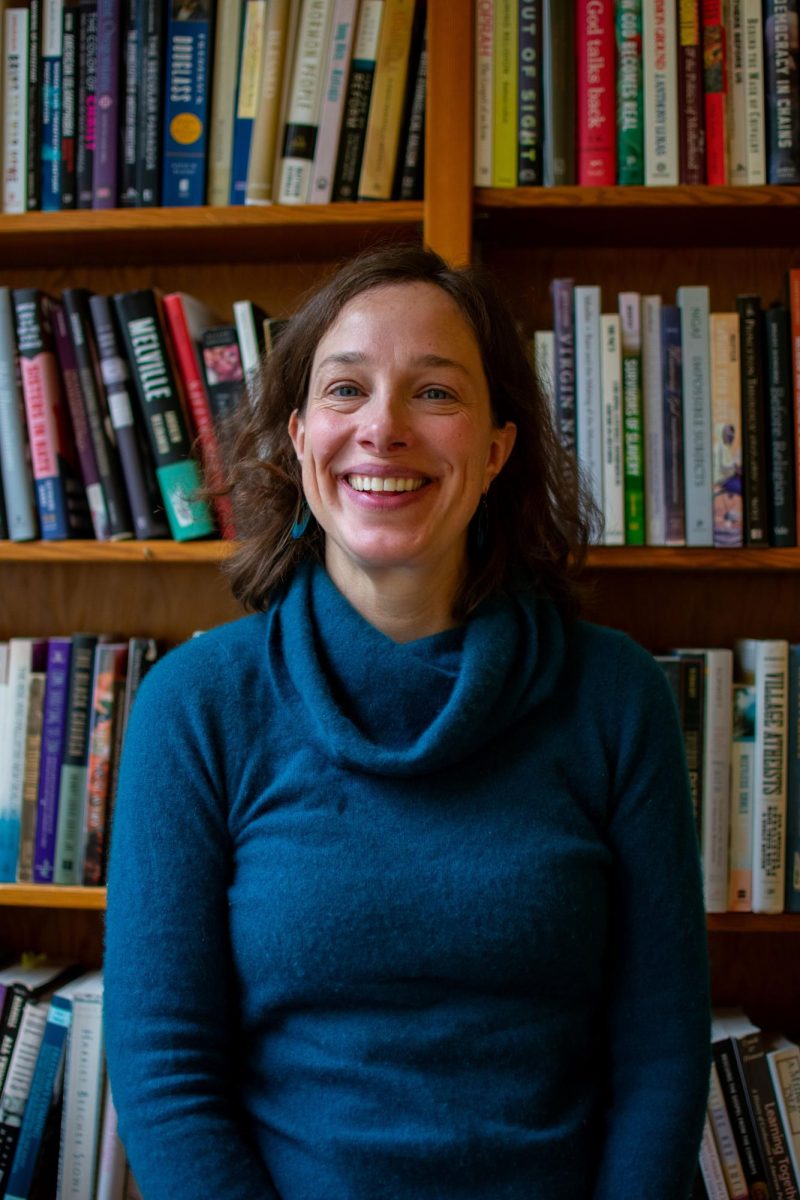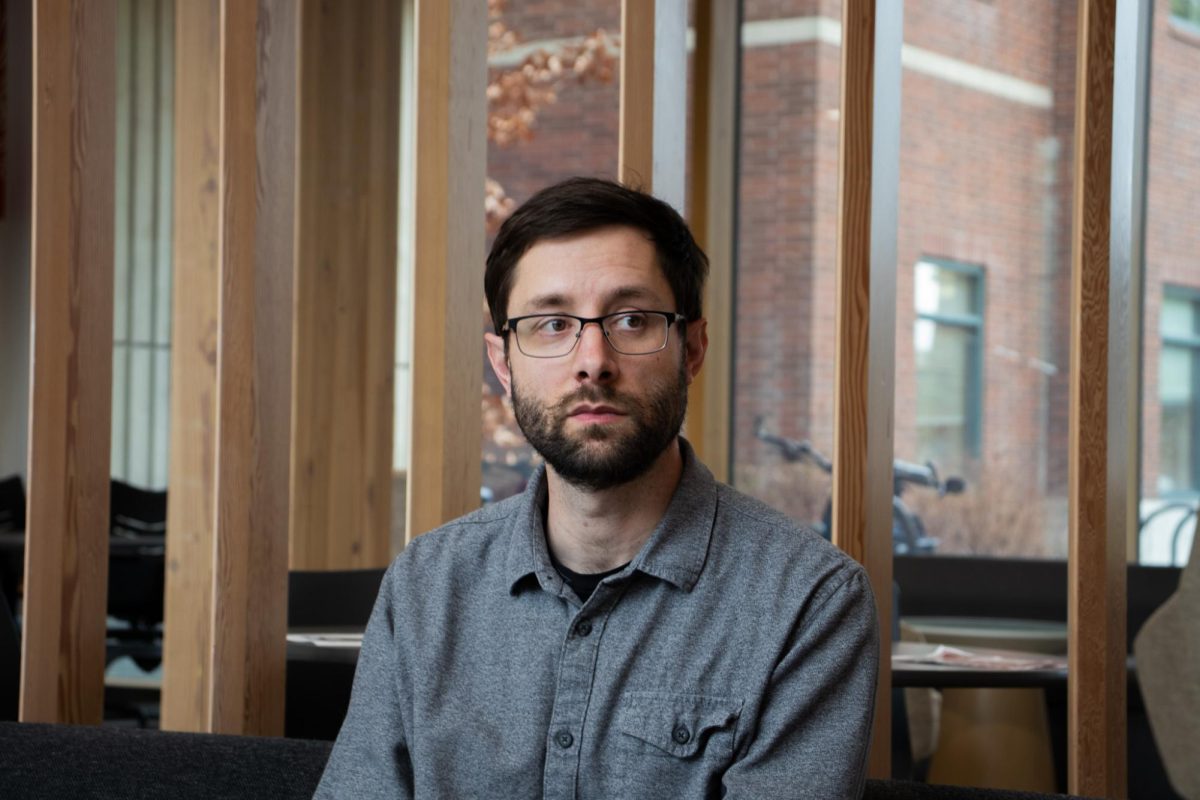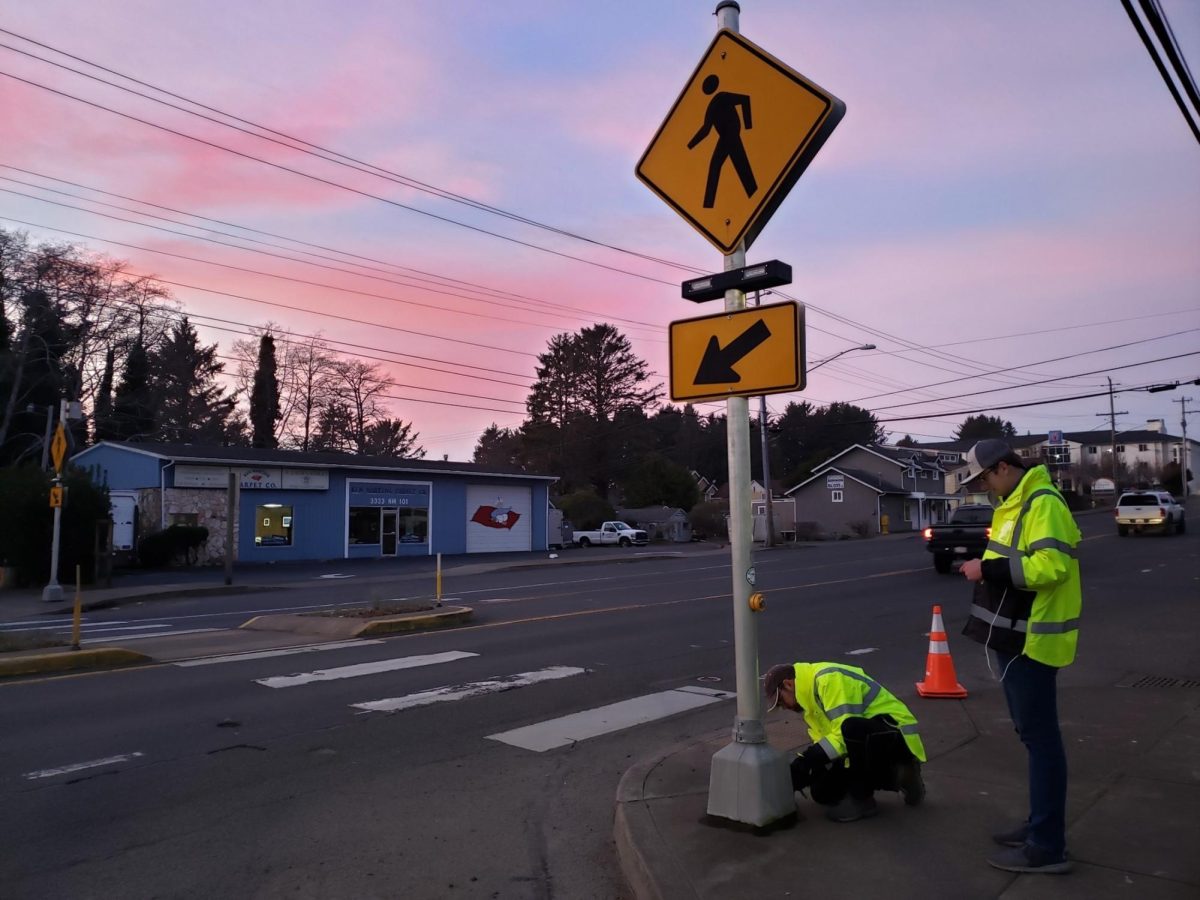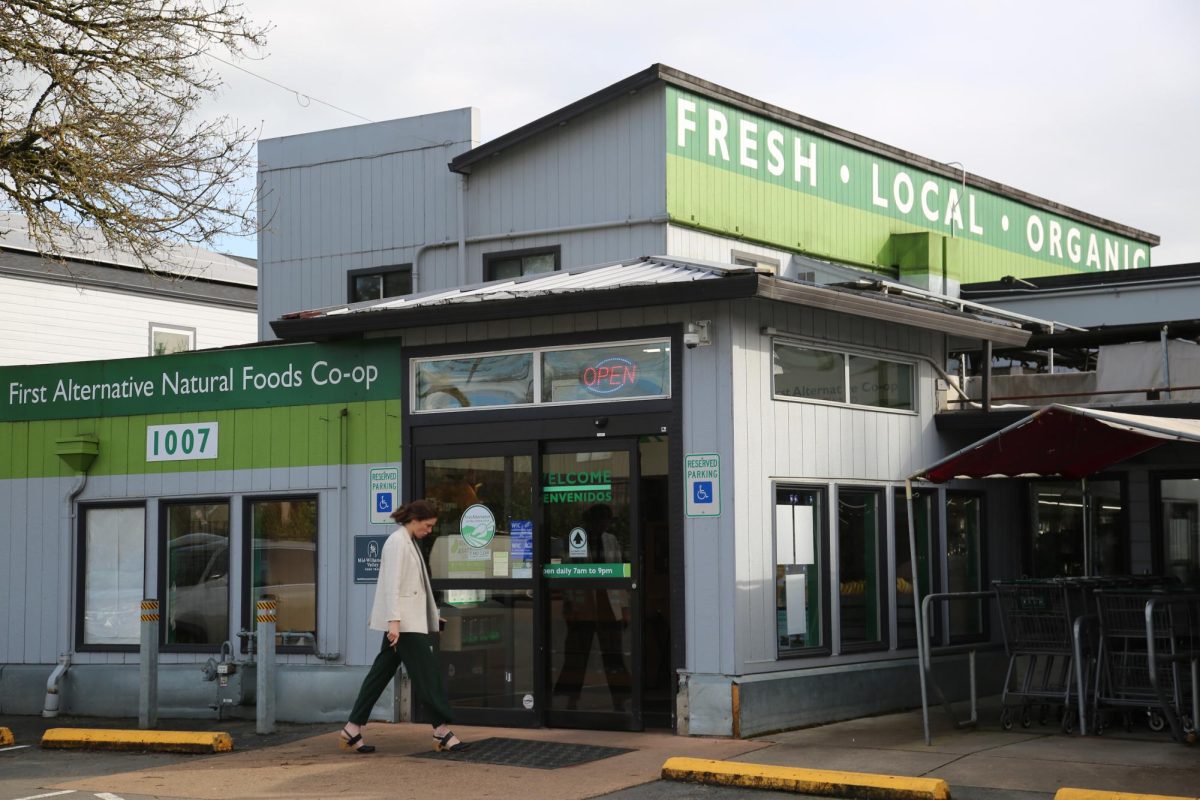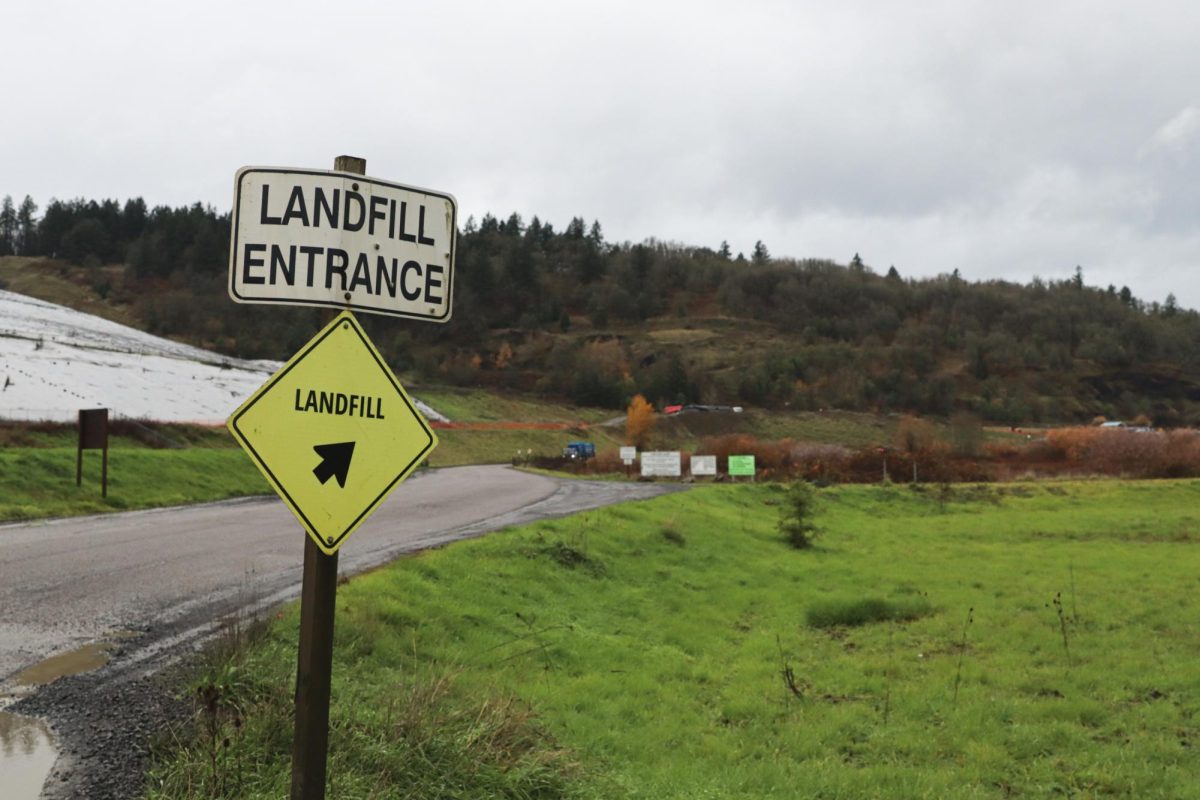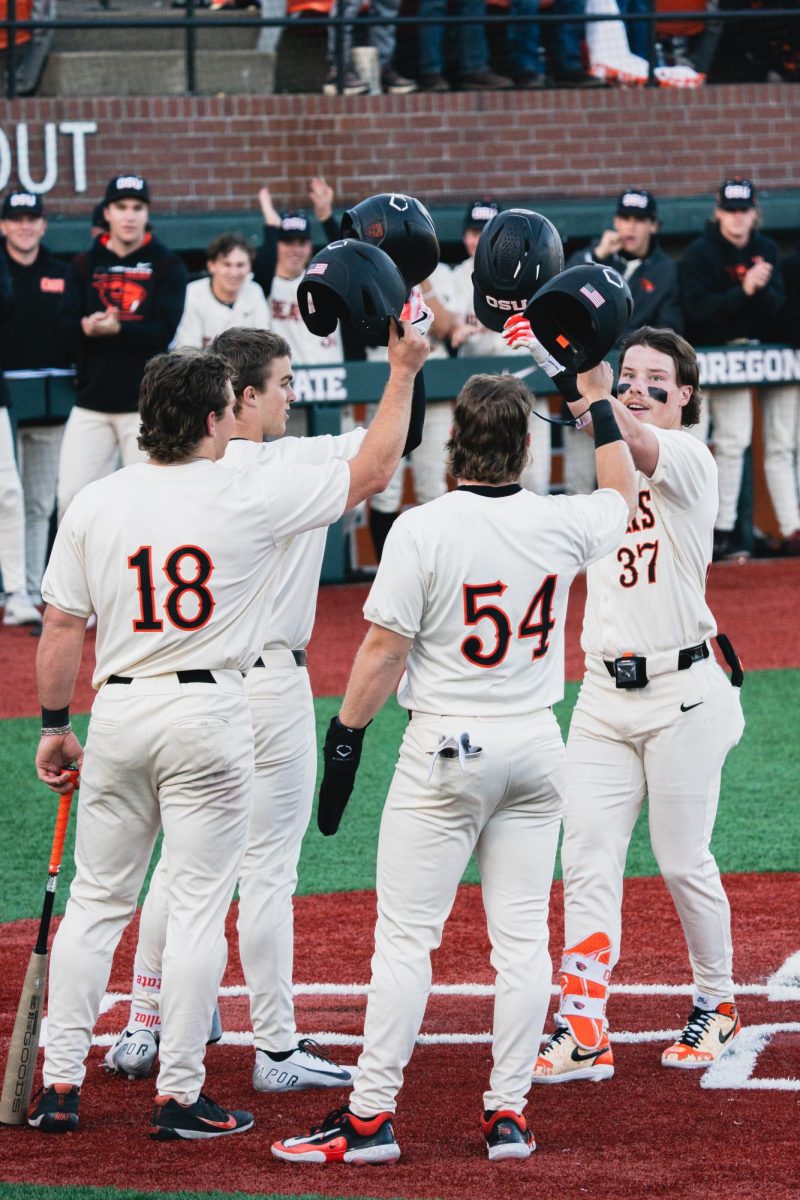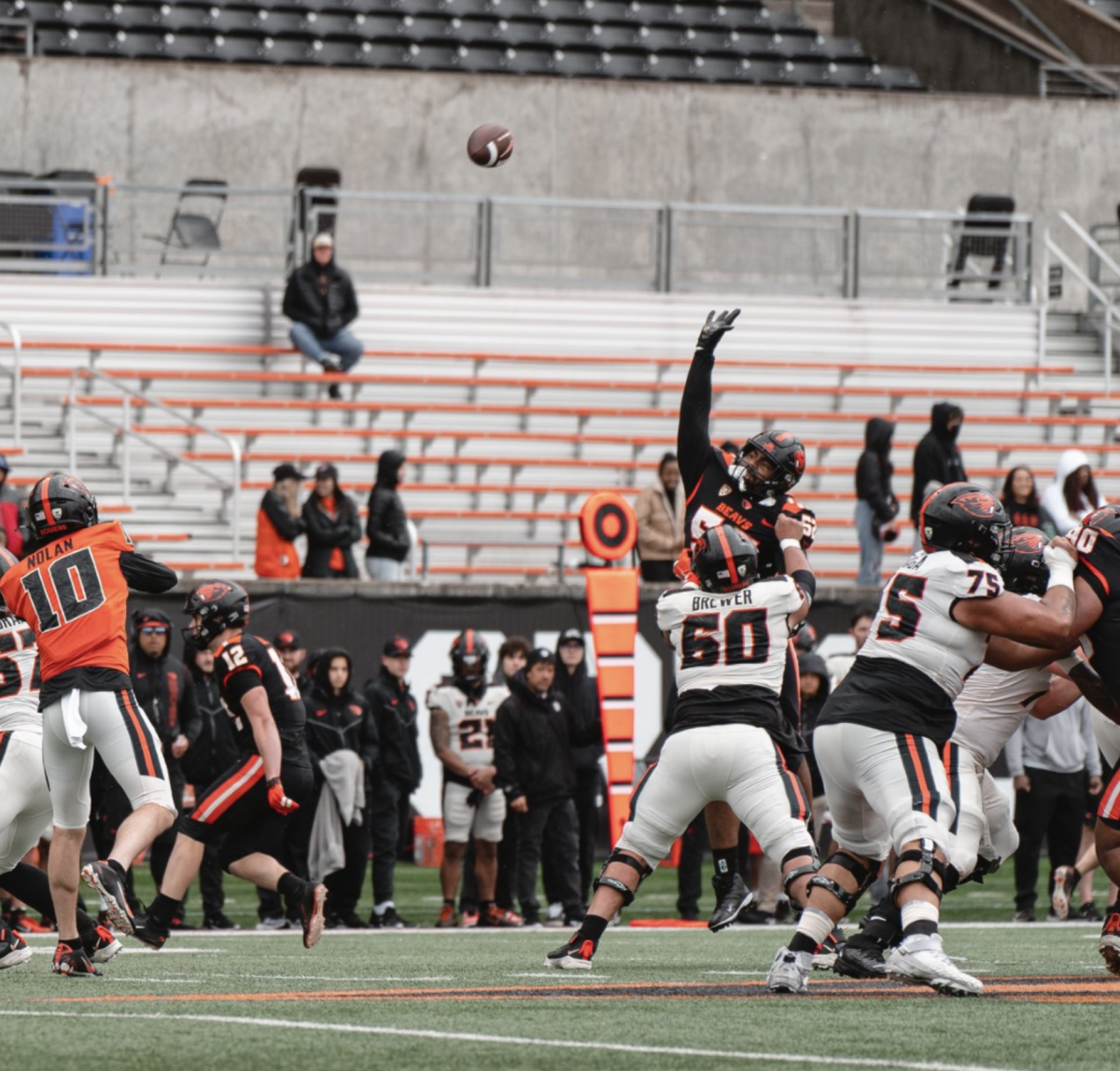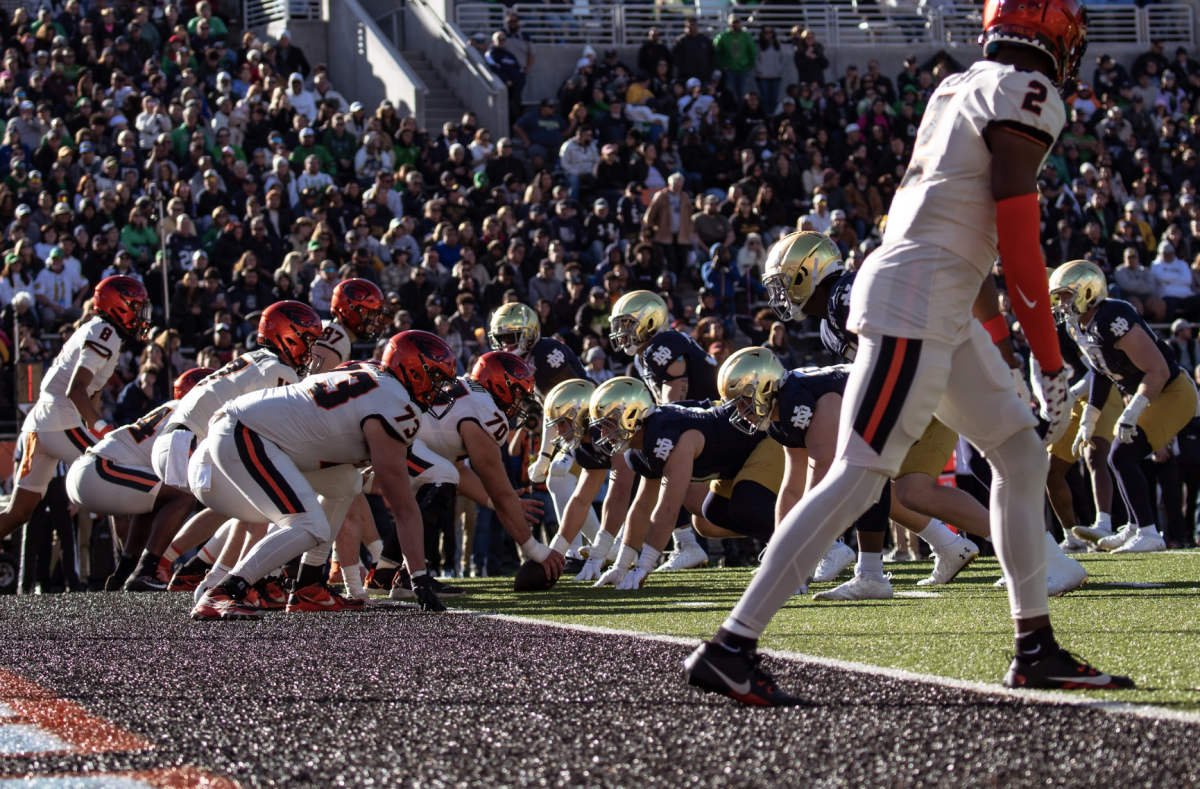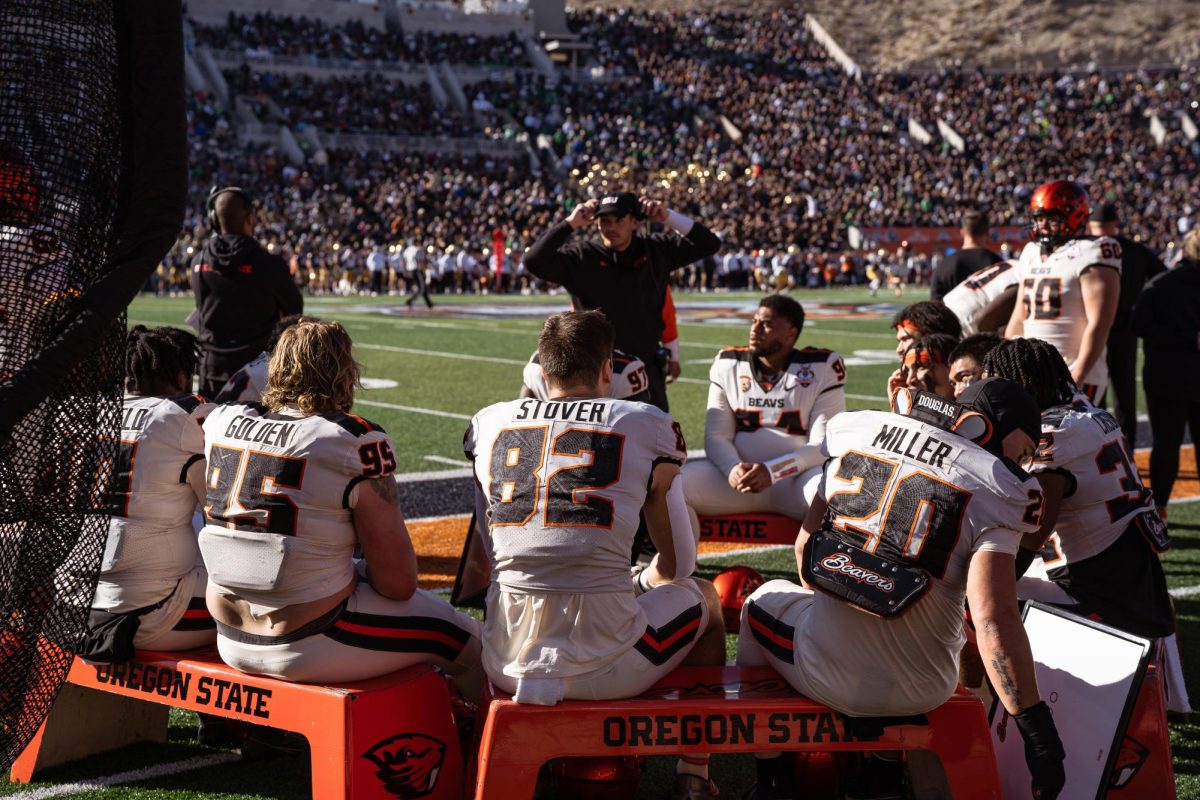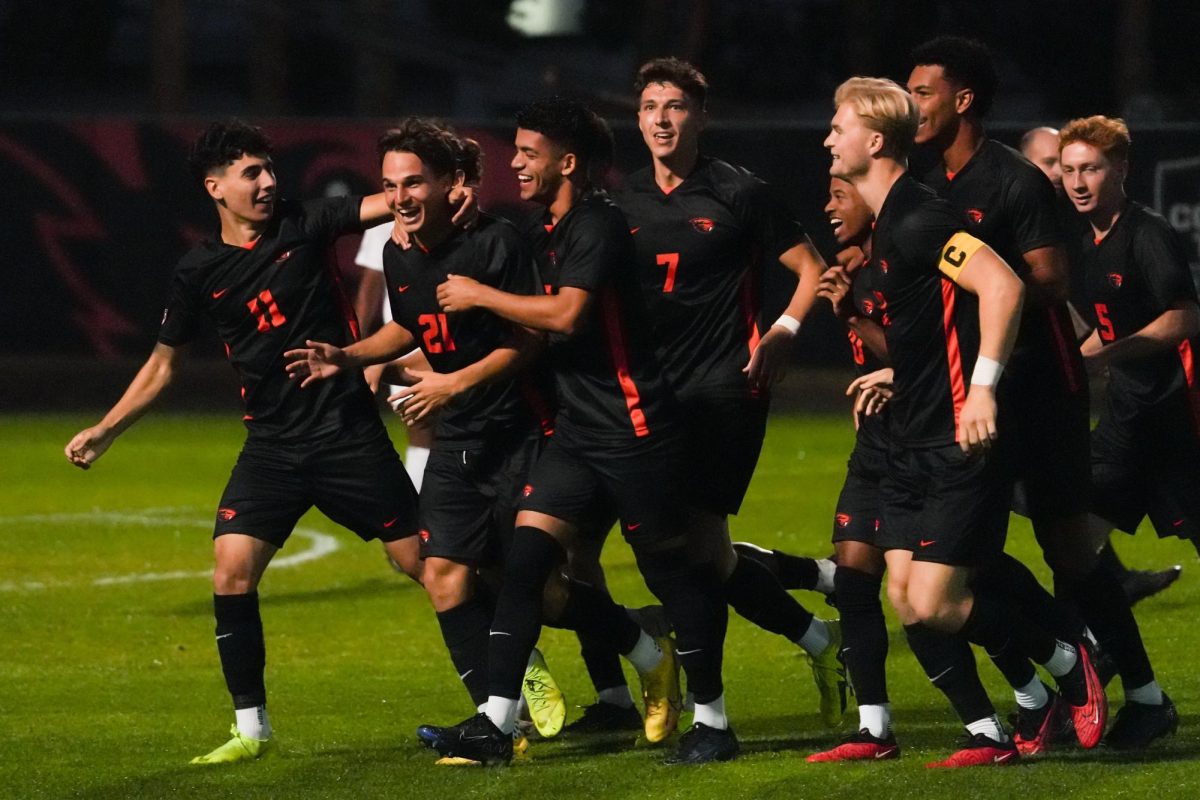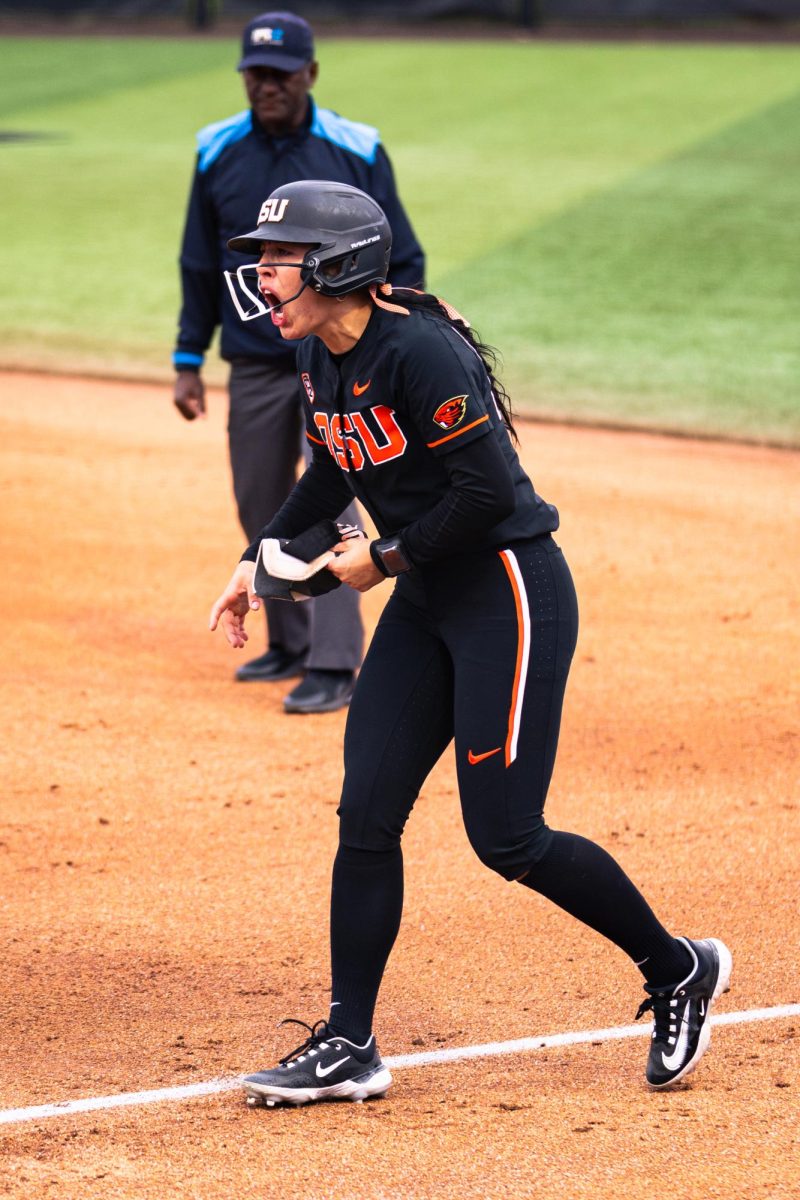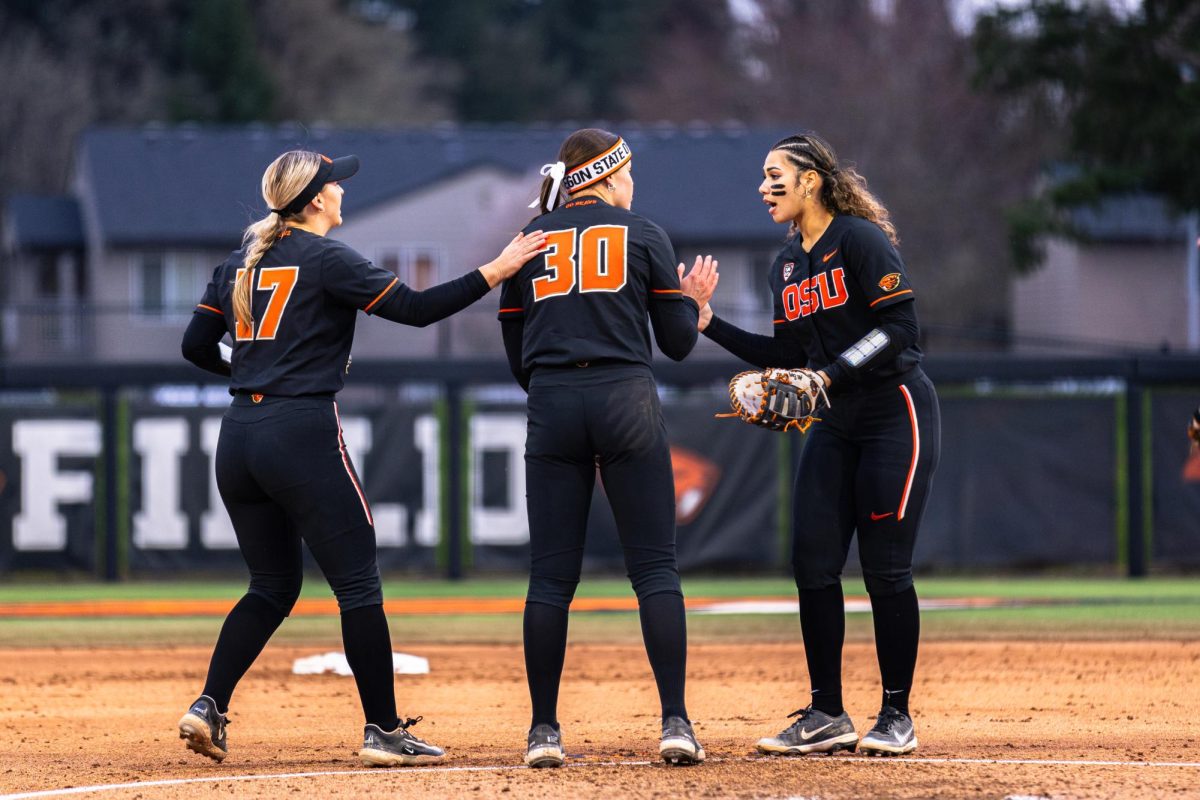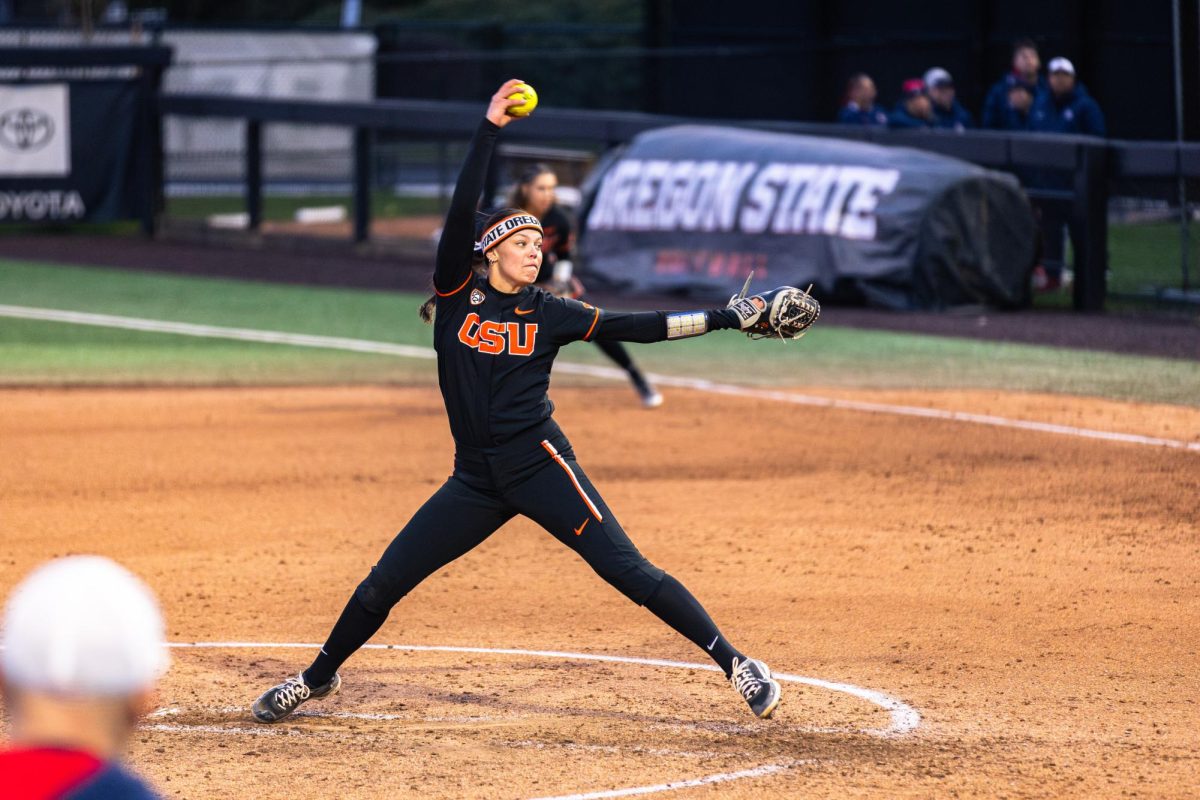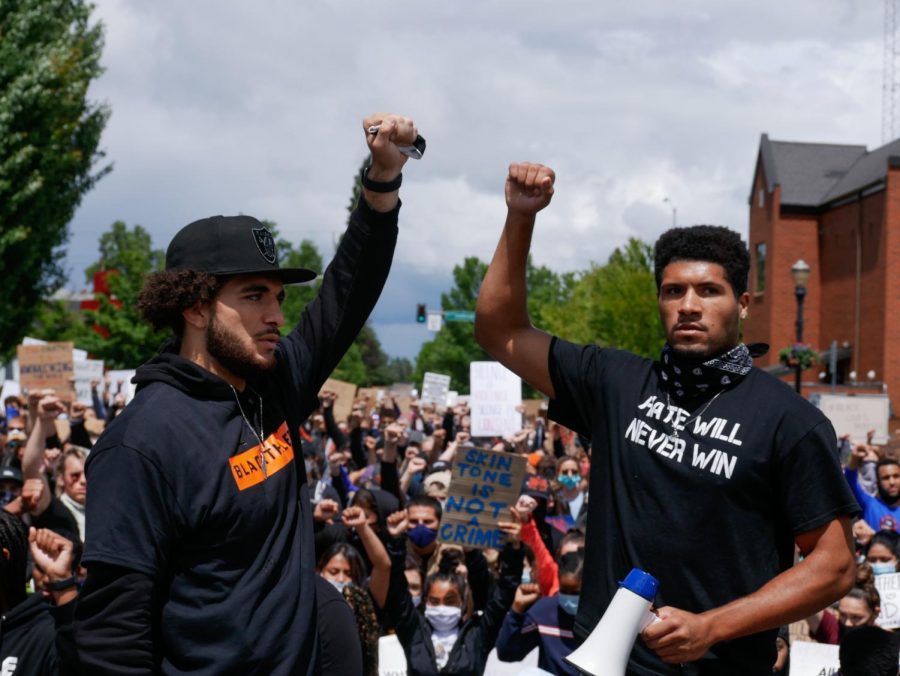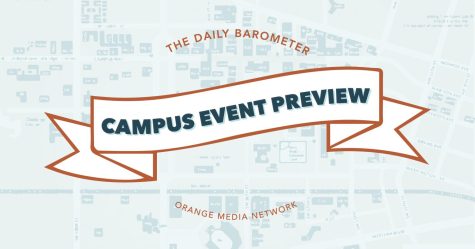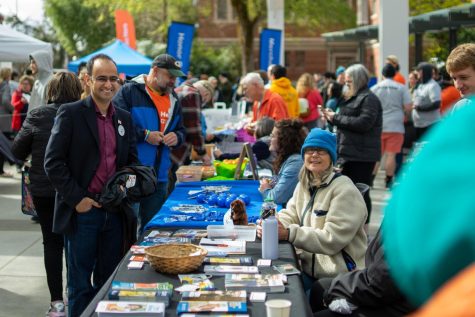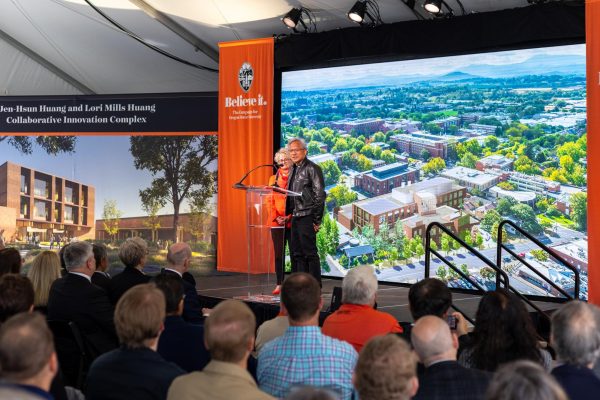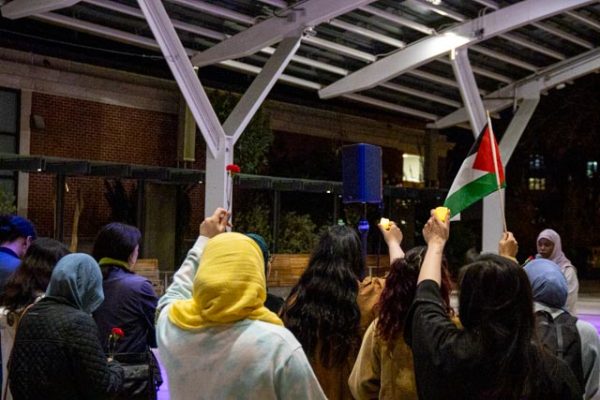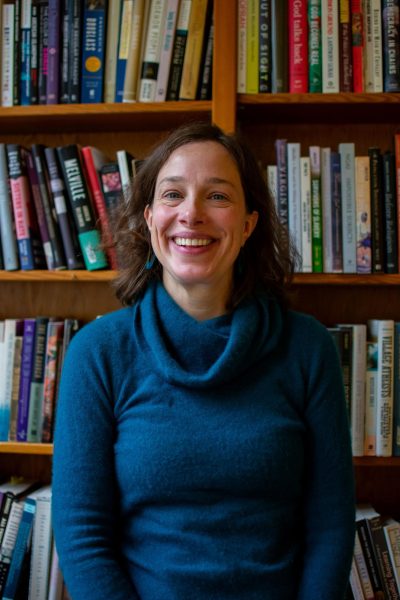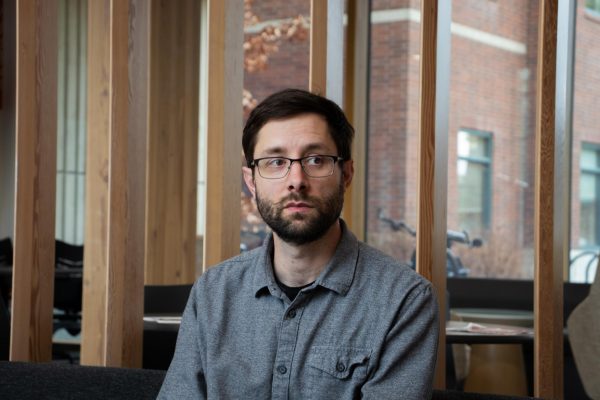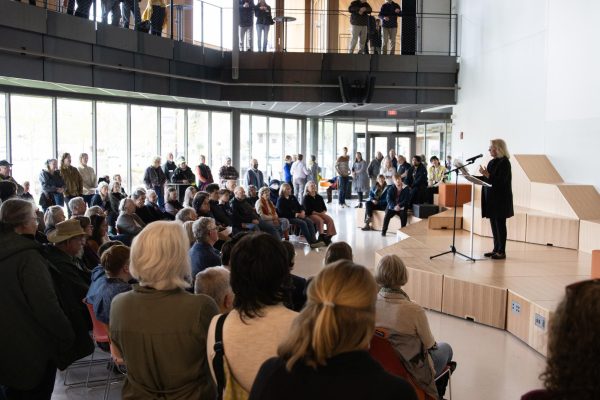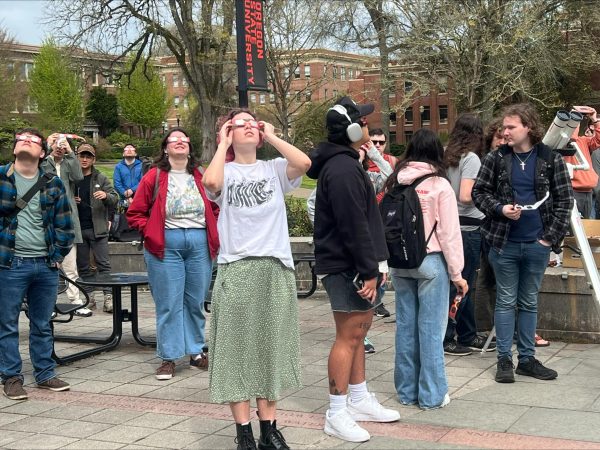OSU explores right to eat
November 18, 2015
Members of the Oregon State community gathered to share a free meal and discuss food insecurity on campus yesterday at the Centro Cultural César Chávez.
The day prior, student volunteers prepared meals, chopping mounds of fruits and vegetables together—the dishes they created provided nutritious and dietarily-inclusive food options for those in attendance. The food included gluten-free and vegan pizzas and pumpkin pies, and a colorful tossed salad.
Right to Eat was one of the events being held throughout Hunger and Homelessness Awareness Week at OSU.
Growing Food Security, a budding collaboration between the Student Sustainability Initiative, the Center for Civic Engagement, and the Human Services Resource Center, coordinated the Right to Eat event as part of their long term vision for changing conversations around access to food on the OSU campus.
Lauren Armony, a senior in liberal studies and the garden coordinator for Growing Food Security, describes food security as the ability to access safe, nutritious, and culturally appropriate foods.
“Food security is an intersectional issue,” said Armony. “Gender, race, class, ability, even your religion — especially with culturally appropriate foods — all of those can intersect to make you more vulnerable and less able to satisfy your food needs.”
The assistant director of the OSU Pride Center, Cindy Konrad, was the keynote speaker at Right to Eat. Konrad discussed her personal experiences with food insecurity in relation to her work in cultural centers, as well as the disparities in food accessibility faced by those in underrepresented communities.
“We know that folks of color in our community have much higher rates of poverty than white people,” said Konrad. “We know that our LGBT students — especially young people, and especially trans folks — suffer from hunger and homelessness at exorbitant rates, much more than they should statistically.”
Konrad also discussed how members of the LGBT community can feel discomfort when attempting to access food from the many charity food banks affiliated with religious groups.
Organizers of the event agreed that a major issue related to food insecurity is the way it is stigmatized and often shamed.
“When we reach out to collaborate on something as personal as food insecurity, it takes relationship building, and it takes getting to know a community,” said Konrad. “These are issues that are really personal, and we shame people for not being able to take care of themselves and support themselves.”
During the event, Konrad also discussed the ways even the most impoverished people can downplay their own experiences of food insecurity.
The ultimate goal of the Right to Eat event and the work done throughout the year by Growing Food Security, is to make accessing resources a more community-based effort.
Mariah Waite, the outreach coordinator for the Center for Civic Engagement and committee member for Growing Food Security, recognizes that this community effort may initially be difficult due to the normalization and acceptance of food insecurity within higher education. According to Waite, jokes and tropes like the ‘hungry college student surviving solely off of ramen,’ perpetuate the problem.
“Our goals are to create a culture on our campus that destigmatizes food insecurity, and also to create a just food system,” said Waite.
Growing Food Security is in the process of adopting a more educational component, ranging from discussions of food security to cooking classes, and expanding eventually into other skill-learning workshops to empower people to grow their own food.
Madison Delmendo, a senior in biocultural anthropology, is in her second year as the food projects coordinator with the Student Sustainability Initiative. Delmendo said food insecurity is a silent issue. She said though it may not always be visible to others, it has an immense presence among college students.
“I think a lot of times, people think that because you’re in college you’re somehow protected because you’re in this microcosm, and there’s all these programs—but people still do struggle,” said Delmendo.
Food insecurity among students can have negative impacts on every aspect of their lives, even academic learning, according to Armony.
“We’re supposed to be here to broaden our minds and become good citizens, but it’s hard to be hungry and do that,” Armony said.


